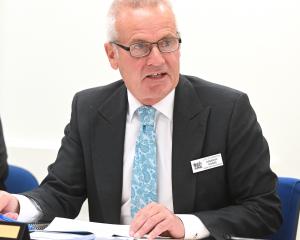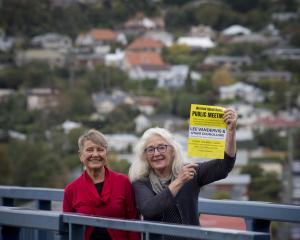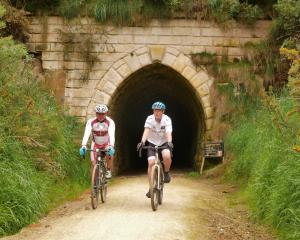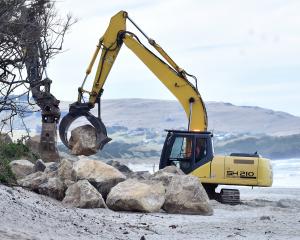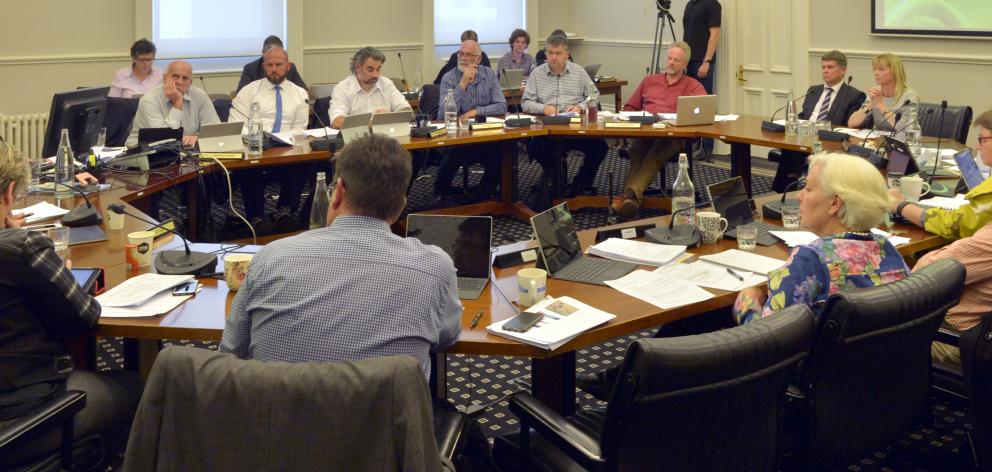
While there were some ongoing issues that were not getting their first airing, others reflected the sort of pressures affecting the city's fringes.
Mosgiel Taieri Community Board chairwoman Sarah Davie-Nitis said the population of the suburb was 16,251 in the 2013 census and it was likely to have grown, making it a ``fair chunk'' of the Dunedin population.
Priorities for the board included beautification with projects like murals and plantings, enhancing urban walkways, and the planned aquatic centre in Mosgiel.
The board was also keen to lobby for a review of infrastructure in the area, particularly transport, waste water and storm water.
``The number of residential dwellings has increased and our infrastructure is struggling,'' Mrs Davie-Nitis said.
It was possible if a one-in-100-year flood event hit, Mosgiel could suffer a similar fate to South Dunedin, when that area flooded in 2015.
She also said the suburb needed transport help, as the off-ramp to Mosgiel became badly banked up at busy periods.
``Some people consider Mosgiel to be one large rest-home. It's not.''
Instead, many residents worked in the city and commuted, and their transport issues needed to be considered.
Strath Taieri Community Board chairman Barry Williams said the board was pleased with the council's support.
However, a promised monthly schedule of maintenance for the area had not been provided to the board.
Correspondence from contractors travelling to the area to carry out roading repairs would be helpful to ensure existing facilities could be prepared in advance, Mr Williams said.
A few potholes in the area required fixing before the school term began, but roads were generally in good condition.
The relationship between council staff and the community board was ``very good''.
Otago Peninsula Community Board chairman Paul Pope called on the council to continue its work widening Portobello Rd and turning it into ``a roadway that works for the peninsula community and the city''.
He asked for the council to continue to work with the community on Te Rauone Beach to deal with erosion issues, continue to maintain and protect roading assets, and support and maintain parks, reserves and biodiversity on the peninsula.
Mr Pope said one issue residents struggled with on the peninsula was internet coverage. Pupils struggled to connect once they got home from school, and businesses such as the Royal Albatross Centre were unable to connect to other parts of its business elsewhere.
He asked for ``more active advocacy'' from the council to get fast broadband to the peninsula.
Areas such as Harwood were on a copper network and it was ``pretty hard for those guys'', and Asian tourists, in particular, were keen to instantly share their experiences via social media.
Mayor Dave Cull said broadband infrastructure provider Chorus did organise ``bespoke solutions'' for rural areas.
Waikouaiti Coast Community Board chairman Alasdair Morrison said the board was not asking council for money because ``there isn't any''.
Ongoing issues for the area included completing the capping of the Waikouaiti landfill and the creation of a transfer station and recycling centre.
Support for a recycling centre was strong and such a space could become ``a bit of a showpiece'' for the community, Mr Morrison said.
Residents did not know how to respond to the threat of a tsunami following the Kaikoura earthquake and leaflets detailing an appropriate response on the coast would be helpful.
At the time of the earthquake there was ``a great deal of confusion'' about what impact a tsunami could have on the area and residents wanted more information on the risk.
The council had worked well in partnership with the community board and Warrington residents on radically improving issues around freedom camping in the Warrington domain.
The success of freedom camping in the area could be used as a model for other areas.
West Harbour Community Board chairman Steve Walker urged the council to continue lobbying for the completion of the State Highway 88 cycle-walkway.
The project ``desperately needs completing'', he said.
He also called on councillors to deal with the run-down fencing on the highway that was ``the first and last thing that cruise ship passengers see when they visit Dunedin''.
Apart from looking ``repulsive'' in places, it was also a health and safety issue, with shards of metal protruding from the pavement.
Mr Walker also asked the meeting to consider budgeting to send more members to the community boards' national conference for seminars and training opportunities.
``It's a great learning process to learn from other people and how they do it.
``It should be encouraged.''




